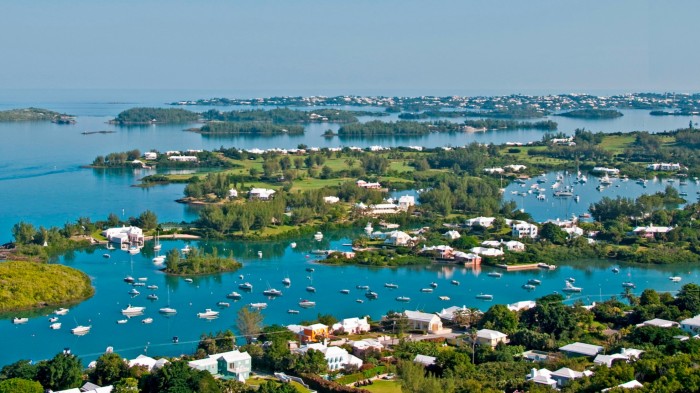Unlock the Editor’s Digest for free
Roula Khalaf, Editor of the FT, selects her favourite stories in this weekly newsletter.
US life insurers have shifted more than $1tn of liabilities offshore, offloading more risk to foreign jurisdictions despite regulators’ concerns about protections for retirement savings and broader financial stability.
Private capital-owned groups such as Apollo’s Athene and KKR’s Global Atlantic, as well as traditional insurers such as Prudential and MassMutual, last year moved more than $130bn of liabilities to offshore reinsurers primarily based in Bermuda, according to new figures from S&P Global Market Intelligence.
US life insurers’ and annuity providers’ total reserves ceded abroad, including liabilities moved to jurisdictions such as the Cayman Islands and Barbados, reached $1.1tn by the end of 2024, S&P said.
The reinsurance deals come despite regulators and credit rating agencies warning of rising risks, with questions about whether the reinsurers have adequate assets to back up their promises to policyholders.
Scrutiny intensified last year after the meltdown of 777 Re, a private equity-owned Bermudian reinsurer that had taken on significant exposure to assets connected to Josh Wander’s Miami-based investment company, which collapsed last year after a failed attempt to buy football club Everton.
The fallout hit US insurers that had ceded billions of dollars in assets to 777 Re through risk-transfer deals, and Utah’s insurance commissioner asked a judge to place an insurer and two reinsurers connected with 777 Re into rehabilitation in March.
Life insurers have used the global reinsurance sector for many years to spread their risks, such as customers living longer than expected.
But so-called asset-intensive or funded reinsurance, where the risks associated with both liabilities and the assets backing them are sent offshore, is raising concerns among regulators.
Insurers’ growing ties with alternative investment managers could also create conflicts of interest, according to Fitch Ratings.
Athene, acquired in 2022 by Apollo, had transferred the risk associated with liabilities worth $193bn to its offshore affiliates by the end of 2024, according to a Fitch analysis of regulatory filings for the Financial Times, in a strategy that helped to fuel a record-breaking year of US annuity sales for the insurer.
But traditional insurers such as MassMutual, with asset manager Centerbridge, and Prudential, with private equity group Warburg Pincus, have also made greater use of vehicles, in a sign of how private equity groups have reshaped retirement savings.
Following the 777 scandal, Bermuda’s financial watchdog said that it would more closely monitor connected-party assets. Both the Bermuda Monetary Authority and the US National Association of Insurance Commissioners have also recently announced new supervisory measures, such as additional reporting requirements on insurers’ investment portfolios, that analysts at Fitch told the Financial Times had helped to address their concerns.
Suzanne Williams-Charles, chief executive of a trade body for Bermuda reinsurers, told the Financial Times: “We believe that the Bermuda reinsurance market — specifically, the life sector — does not pose a systemic risk.”
But fresh concerns have emerged in other offshore jurisdictions over capital requirements, with prominent Bermuda reinsurers recently seeking to distance themselves from practices in the Cayman Islands.
Athene chief executive James Belardi warned investors earlier this year of “unabated growth” in the Cayman Islands, where he said that $150bn of insurance reserves were “supported by a fraction of the capital required by the US or Bermuda”.
The research from S&P found that total reserves ceded by US life insurers and annuity providers to reinsurers, including onshore groups, grew to more than $2.4tn at the end of last year.
Source link









